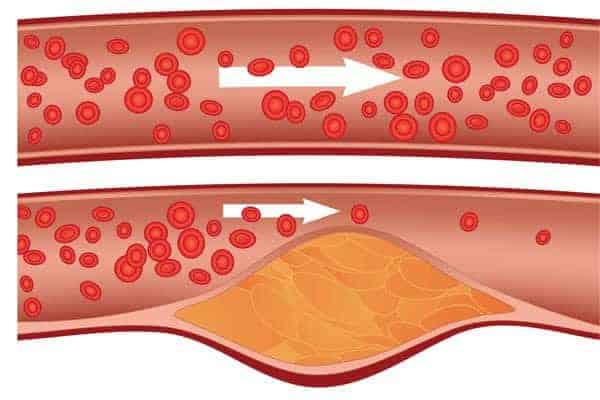15 Foods Cardiologists Want You to Eat for Stronger Heart Health
A heart-healthy diet is one of the most effective ways to protect against cardiovascular disease, which remains a leading global health concern. According to American Heart Association guidelines and recent research, incorporating specific foods can lower cholesterol, reduce inflammation, and improve overall heart function. Cardiologists consistently emphasize the impact of everyday dietary choices, urging everyone to include nutrient-rich foods that support strong and resilient hearts.
1. Salmon

Salmon is packed with omega-3 fatty acids, renowned for their role in reducing inflammation, lowering blood pressure, and decreasing triglyceride levels. These heart-protective benefits make salmon a top choice for cardiovascular health. The American Heart Association recommends eating fatty fish like salmon at least twice a week to support heart function and reduce the risk of heart disease.
2. Oats

Oats are an excellent source of soluble fiber, which is particularly effective at lowering LDL (“bad”) cholesterol. This heart-protective fiber forms a gel that helps remove cholesterol from the body. Compared to other whole grains, oats are especially rich in beta-glucan, the compound responsible for these benefits. According to Harvard Health, regularly consuming oats can significantly improve cholesterol levels and support overall cardiovascular health.
3. Berries

Berries such as blueberries, strawberries, and raspberries are loaded with antioxidants, including anthocyanins, which help reduce blood pressure and inflammation—two major risk factors for heart disease. Research highlighted by the Cleveland Clinic shows that regular berry consumption can improve blood vessel function and lower LDL cholesterol. Their vibrant colors indicate a high concentration of heart-protective compounds, making them a delicious and powerful addition to a heart-healthy diet.
4. Leafy Greens

Leafy greens like spinach, kale, and Swiss chard are rich in vitamins, minerals, and dietary nitrates. These nutrients are known to help lower blood pressure by improving arterial function and enhancing nitric oxide availability in the body. According to the National Institutes of Health, regular consumption of leafy greens is linked with reduced risk of cardiovascular disease, making them essential for maintaining strong heart health.
5. Walnuts

Walnuts are a top source of plant-based omega-3 fatty acids and antioxidants that combat inflammation and support heart health. Studies have shown that regular walnut consumption can help lower total and LDL cholesterol levels. The Mayo Clinic highlights walnuts as particularly beneficial in reducing heart disease risk, making them a smart snack for cardiovascular wellness.
6. Olive Oil

Extra virgin olive oil, a cornerstone of the Mediterranean diet, is abundant in monounsaturated fats that help reduce bad cholesterol and inflammation. Numerous studies, including those cited by the Harvard T.H. Chan School of Public Health, link regular olive oil consumption to a significantly lower risk of cardiovascular disease. Its heart-protective properties make it an excellent choice for dressings, cooking, and daily use.
7. Avocados

Avocados are loaded with potassium and heart-healthy monounsaturated fats, both of which play vital roles in maintaining healthy blood pressure and cholesterol levels. These nutrients help lower the risk of cardiovascular disease by reducing LDL cholesterol and supporting vascular health. The American Heart Association highlights avocados as a nutrient-dense food that can be part of a heart-smart eating plan.
8. Beans and Lentils

Beans and lentils are excellent sources of fiber and plant-based protein, both of which are instrumental in lowering cholesterol and maintaining healthy blood pressure. Their high fiber content helps reduce LDL cholesterol, while their protein promotes satiety and supports heart function. The USDA Dietary Guidelines recommend including beans and lentils regularly in meals to promote cardiovascular health and overall wellness.
9. Dark Chocolate

Moderate consumption of dark chocolate containing at least 70% cocoa can support heart health by lowering blood pressure and improving vascular function. Its high flavonoid content helps relax blood vessels and enhance circulation. According to Johns Hopkins Medicine, enjoying a small portion of dark chocolate regularly may provide cardiovascular benefits without excess sugar or fat.
10. Tomatoes

Tomatoes are rich in lycopene, a potent antioxidant known for reducing LDL (“bad”) cholesterol and inflammation, both key contributors to heart disease. Lycopene becomes even more bioavailable when tomatoes are cooked, making sauces and soups excellent options. The American Heart Association highlights the cardiovascular benefits of tomatoes and recommends including them regularly in a heart-healthy diet for their protective effects.
11. Garlic

Garlic contains powerful compounds like allicin that have been shown to lower blood pressure and cholesterol levels. Clinical trials published by the National Library of Medicine suggest that regular garlic consumption can significantly improve cardiovascular health by relaxing blood vessels and reducing arterial stiffness. Adding garlic to meals is a simple way to support heart health naturally.
12. Flaxseeds

Flaxseeds are an excellent source of alpha-linolenic acid (ALA), a plant-based omega-3, as well as fiber and lignans. These nutrients have been shown to lower blood pressure and cholesterol, reducing the risk of heart disease. The Cleveland Clinic recommends adding ground flaxseeds to your diet to maximize their absorption and heart-protective benefits.
13. Oranges

Oranges are packed with vitamin C, potassium, and fiber, all of which contribute to a healthy heart. These nutrients help lower blood pressure, reduce cholesterol, and protect blood vessels. According to the USDA, citrus fruits like oranges provide a wide range of heart-supporting vitamins and minerals, making them a smart daily choice.
14. Sardines

Sardines are a highly nutritious, yet often overlooked, choice for heart health. They are rich in omega-3 fatty acids, calcium, and vitamin D, all of which contribute to reduced inflammation, improved cholesterol, and stronger bones. Harvard Health Publishing highlights sardines as an affordable and convenient way to support cardiovascular wellness.
15. Green Tea

Green tea is rich in catechins and powerful antioxidants that are associated with improved blood vessel function and lower cholesterol levels. Studies reviewed by the National Center for Complementary and Integrative Health suggest that regular green tea consumption may help reduce the risk of heart disease by decreasing oxidative stress and supporting healthy blood flow, making it a heart-smart beverage choice.
Conclusion

Incorporating these nutrient-rich foods into your diet can collectively lower cholesterol, reduce inflammation, and support healthy blood pressure—key steps in protecting your heart. As expert sources like the American Heart Association emphasize, making intentional, gradual dietary changes can have a powerful impact on cardiovascular wellness. Start by adding a few of these foods to your meals and enjoy the lasting benefits for your heart health.
Medical Disclaimer

This article is for informational purposes only and does not constitute medical advice. Always consult a qualified healthcare professional or your physician for personalized recommendations and before making significant changes to your diet or lifestyle.
.article-content-img img { width: 100% }




